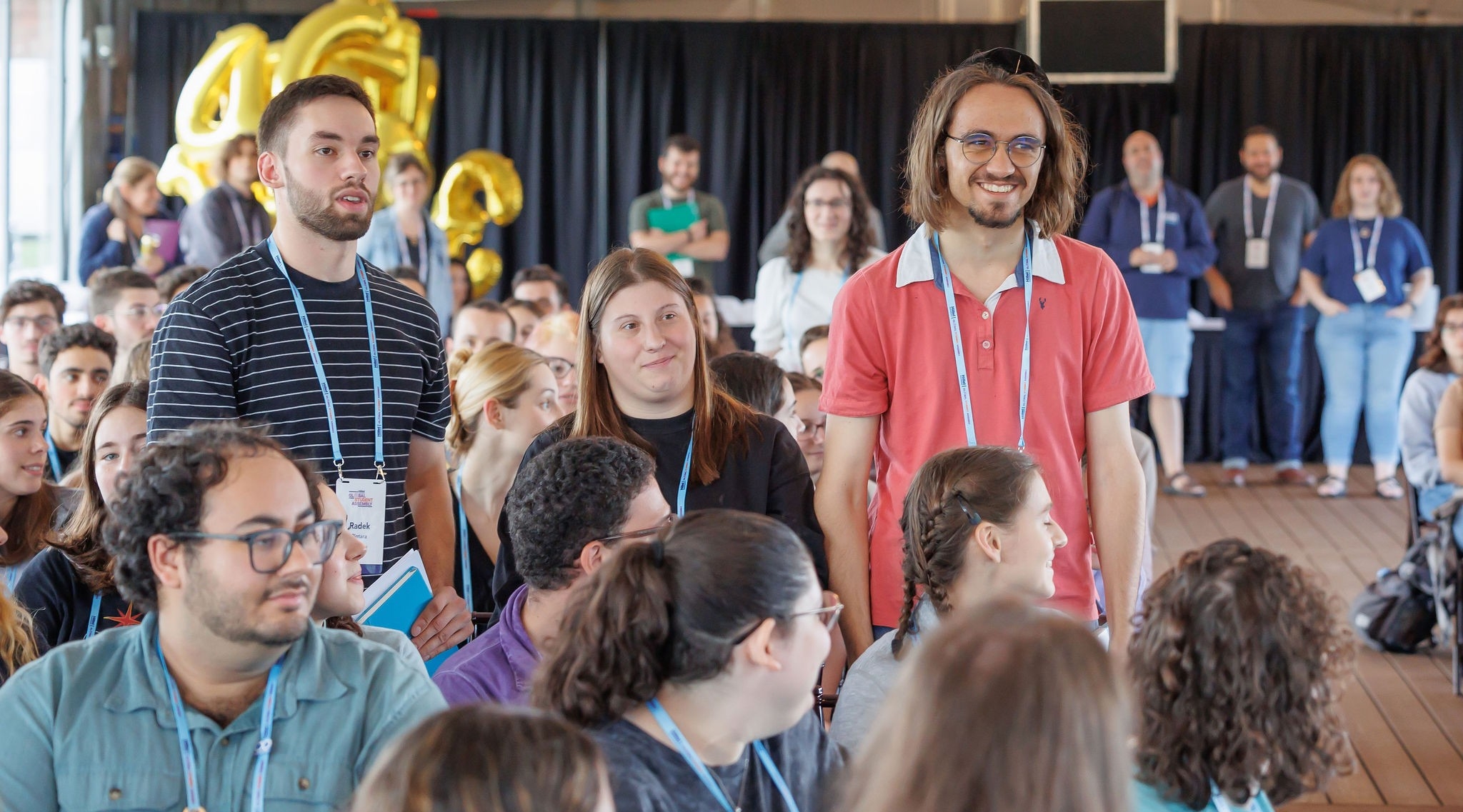Cleaning up beaches near Rio de Janeiro and learning about Jewish environmental values. Connecting with Jewish study abroad students in London. Discovering the richness and plurality of Jewish traditions at Israeli cultural centers from Haifa to Sderot. Exploring the intersection of art and Jewish identity in Berlin. And helping Jewish students rebuild, physically and emotionally, after bombings in war-torn Ukraine.
What do these experiences have in common?
They’re all possible because of the global Hillel movement. In fact, Hillel International’s expansive infrastructure enriches the lives of Jewish students and young adults around the world on nearly a thousand campuses and in communities internationally.
Outside of the United States, there are more than 50 Hillels with vibrant hubs in Argentina, Azerbaijan, Belarus, Brazil, Canada, France, Georgia, Germany, Israel, Moldova, Poland, Russia, Ukraine, and Uruguay. With a presence in 16 countries across four continents — spanning 20 time zones and operating in more than 10 languages — tens of thousands of students and young adults engage with Hillel from outside of North America.
And it’s easy to understand why.
Hillel is about bringing young Jewish adults together, wherever they are, to connect the global Jewish community. That shared connection unites young Jewish people all around the world, whether they’ve grown up immersed in Jewish culture and speaking Hebrew, like many of the Hillel Israel participants, or they’ve only just learned about their Jewish identity, like some of the young people in Hillel Poland. Just like on North American campuses, where Hillel focuses on paving a pathway for college students to celebrate and participate in Jewish life, international Hillels around the world are meeting Jewish young adults where they are by creating experiences that help them explore their Jewish identity, deepen their sense of belonging, and actively shape their communities.
Jewish young adults from Germany and Israel connect around their shared heritage. (Hillel International)
Just like in the United States and Canada, Hillel’s global communities focus on providing a Jewish home away from home. Earlier this spring, Hillel International hosted an event in London for students who are studying abroad, away from their home countries, and far from their local Hillels and Jewish campus communities. The first-ever Hillel Global Social gave them an opportunity to celebrate Purim and to experience Jewish joy with over 100 Jewish students studying throughout Europe. People walked away with new friends, with a place to go for Shabbat dinner the following weekend, and with plans to attend JDC Entwine’s Global Campus gathering in Krakow as a group.
Everyone wants more connection and a feeling of belonging as part of a welcoming community, and that’s where Hillel’s programming thrives.
Unlike most North American Hillels, many international Hillels are affiliated with cities, rather than with colleges or universities. But just like no two college campuses are alike, every international Hillel has its own unique character and programming, developed in order to best serve their communities.
For example, Jewish students in Israel speak Hebrew, follow the Jewish calendar, and spend most of their time with other Jews. Yet many of them are still looking for a stronger connection to Jewish tradition. Hillel Israel gives them opportunities to build that connection through Jewish pluralism and peoplehood. They participate in exchange programs, help lead immersive trips to meet Jewish students visiting from other countries, and learn about the many different ways people express their Jewish identity and values.
On the other side of the world, Hillels in Latin America (with centers in Argentina, Brazil, and Uruguay) are focused on investing in the growth of Jewish young adults, regardless of how they practice their Judaism. South American Hillels provide professional and personal opportunities such as social action projects, Israel advocacy, business clubs, and entrepreneurship. In Argentina, where Jewish young adults often have very close ties to Israel and Zionism, Hillel offers a chance to connect to other Jews around the world outside of Argentina and Israel.

Students from Hillel Poland share their experiences with Jewish students from elsewhere around the world. (Hillel International)
Hillels in Germany, Poland, and Russia, as well as those in Central Asia and Southeastern Europe, have very different populations. Circumstances like decades of systemic antisemitism, the impacts of World War II, and the dangers to Jewish communities under communist-led governments have led many of today’s Jewish young adults to discover their ties to Judaism as older children or teenagers because their Jewish identities were hidden by previous generations for their own safety. In fact, about 70% of Hillel Poland participants were raised without any knowledge of their Jewish heritage. For these young people, participating in Hillel may be their first opportunity to experience Jewish life, traditions, and community.
Even amid destruction and tragedy — three Hillel centers in Ukraine have been destroyed by rocket fire in the current war, and have yet to be fully rebuilt — Hillel is engaging more participants than ever, and providing meaningful opportunities, education, and services to its student-age population and, in some cases, to the elderly and others.
Whether a student lives in Houston or Haifa, Toronto or Tbilisi, Baltimore or Berlin, young Jewish adults around the world are seeking meaningful connection with one another. And with Hillel, they’re building relationships throughout and beyond their communities, cities, and even countries. They’re all part of one diverse, amazing global community — and no matter what Jewish young adults need, Hillel will be there every step of the way.
This is a paid post. JR’s editorial team had no role in its production.




